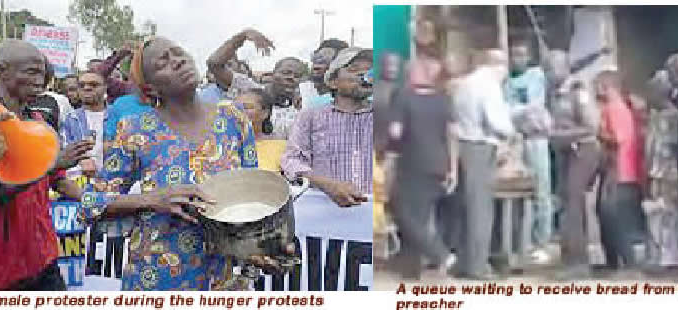
malnutrition to affect 5.4m children, 800,000 pregnant, breastfeeding women
ABUJA-The Cadre Harmonisé report on food and nutrition insecurity analysis said no fewer than 133.1 Nigerians would face a global hunger crisis in 2025.
The Food and Agriculture Organization, FAO, disclosed this in a statement yesterday. It said the report was prepared by the federal government and supported by partners, such as the World Food Programme, WFP, and the United Nations Children’s Emergency Fund, UNICEF, among others.
The statement read: “The food and nutrition insecurity analysis, Cadre Harmonisé, led by the government of Nigeria and supported by partners, alerts on the deterioration of food security in Nigeria, with 133.1 million people expected to face high levels of food insecurity in the next lean season (June-August).
“It is an alarming seven million people increase from the same period last year, driven by economic hardship, coupled with record high inflation, impacts of climate change and persistent violence in the northeastern states.
“Nationally, the number of people experiencing emergency levels (Phase 4) of food insecurity is projected to increase. While no populations have been classified as catastrophe (Phase 5), populations experiencing emergency (Phase 4) are anticipated to increase from 1 million people in the peak of the 2024 lean season to 1.8 million people at the same period in 2025, representing an 80 per cent increase.
“Approximately 5.4 million children and nearly 800,000 pregnant and breastfeeding women are at risk of acute malnutrition or wasting from six of the most affected states of Borno, Adamawa, and Yobe in the northeast, as well as Sokoto, Katsina and Zamfara in the northwest.
”Of these, an alarming 1.8 million children could face severe acute malnutrition (SAM) and require critical nutrition treatment.
“Drivers of food security in Nigeria grapple with several factors that continue to exacerbate
the food insecurity situation, namely economic hardship, coupled with record high inflation (which reached 40.9 per cent for food, and 34.2 per cent for all items in June 2024).”
Speaking at the presentation of the report, the Permanent Secretary, Federal Ministry of Agriculture and Food Security, Dr Temitope Fashedemi, who was represented by the Director of Nutrition and Food Security, Dr Nuhu Kilishi Mohammed, underscored the significance of the Cadre Harmonisé during the presentation, which recommended that the results be adopted for planning and implementation of food and nutrition security interventions across federal ministries, departments and agencies, MDAs, 26 Cadre Harmonise States, the humanitarian community and other partners in Nigeria.
On his part, FAO Representative ad interim in Nigeria and ECOWAS, Dominique Koffy Kouacou, expressed FAO’s continued commitment to supporting Nigeria.
“Working closely with our partners, FAO is dedicated to implementing durable solutions that tackle the underlying causes of food insecurity and malnutrition.
”By enhancing agri-food systems, we strive to meet urgent needs, while promoting long-term, sustainable progress for communities”, Kouacou said.
Highlighting the longstanding issue, the Country Director, World Food Programme, WFP, David Stevenson, said: “The hunger crisis in Nigeria, fuelled by the ongoing conflict in the northeast, needs urgent addressing.
”Restoring peace in the northeast is critical for us to build pathways to production and achieve the northeast’s potential as the food basket of the country.”
UNICEF’s Country Representative, Ms. Cristian Munduate, emphasized the urgent need for action.
Munduate said: “Children are at the center of the food insecurity crisis and face irreversible consequences, both physical and cognitive, and potentially even death.
”It is our moral imperative to ensure that the right of every child to adequate food and nutrition is upheld.”
Consequently, the United Nations urged the federal government, donors and stakeholders to commit resources and implement measures to avert a potential food and nutrition disaster, emphasizing the need for immediate multi-sectoral support across the nation.
